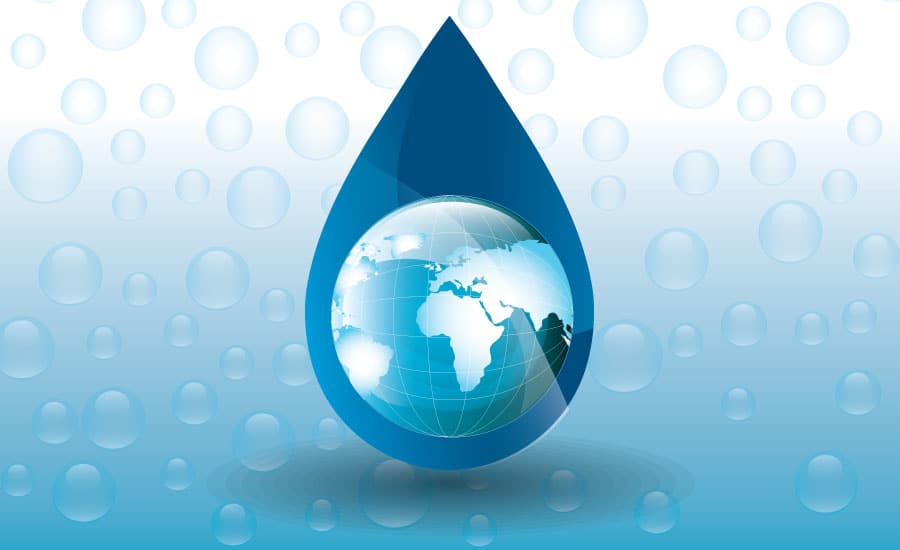Water, the elixir of life, is indispensable for human survival, environmental balance, and economic prosperity. However, the world is facing an escalating water crisis that threatens communities, ecosystems, and economies. In this blog, we delve into the complexities of the global water crisis, examining its causes, consequences, and proposing actionable solutions to secure a sustainable water future.
Understanding the Water Crisis: A Multifaceted Challenge
The water crisis is not a singular issue but a convergence of interconnected challenges, each exacerbating the other. These challenges include:
- Water Scarcity: Many regions across the globe experience physical water scarcity, where demand surpasses the available supply. As populations grow, urbanize, and industrialize, the strain on water resources intensifies.
- Pollution and Contamination: Industrial discharges, agricultural runoff, and improper waste disposal contribute to water pollution. Contaminated water sources jeopardize human health, disrupt ecosystems, and limit the availability of safe drinking water.
- 3. Climate Change: Altered precipitation patterns, increased evaporation, and extreme weather events linked to climate change further stress water resources. Droughts, floods, and changing hydrological cycles impact water availability and quality.
- Inadequate Infrastructure: Insufficient water infrastructure, especially in developing regions, hinders the effective storage, distribution, and treatment of water. Aging systems and inadequate sanitation lead to water loss and compromise hygiene.
- 5. Unsustainable Agricultural Practices: Agriculture, a major consumer of water, often employs inefficient irrigation methods. Practices like excessive groundwater extraction and deforestation exacerbate water scarcity issues.
Consequences of the Water Crisis: Unraveling the Fabric of Society
The repercussions of the water crisis are pervasive and touch every facet of human life:
- Human Health Impacts: Contaminated water sources contribute to waterborne diseases, affecting millions annually. Lack of access to clean water and sanitation undermines public health efforts.
- Economic Fallout: Industries reliant on water face disruptions, impacting economic stability. Agriculture, a sector heavily dependent on water, experiences reduced yields, affecting global food security.
- Ecosystem Degradation: Depleted water sources jeopardize aquatic ecosystems, leading to the decline of biodiversity. Wetlands, vital for water purification and flood control, face degradation.
- Social Inequality: Vulnerable communities, often lacking access to safe water and sanitation, bear the brunt of the crisis. The burden disproportionately falls on marginalized populations, perpetuating social inequality.
- Conflict Over Resources: Competition for limited water resources can escalate into conflicts at local and international levels. Water scarcity exacerbates geopolitical tensions and has the potential to ignite conflicts over shared water bodies.
Towards Solutions: A Blueprint for Water Sustainability
Addressing the water crisis requires a comprehensive and collaborative approach. Here’s a blueprint for sustainable water management:
- Water Conservation and Efficiency: Implementing water-saving technologies and promoting efficient water use in households, industries, and agriculture can significantly reduce water demand.
- Investment in Infrastructure: Upgrading and expanding water infrastructure, particularly in developing regions, is crucial. This includes improving water storage, distribution, and treatment systems.
- WasteWater Treatment: Implementing advanced wastewater treatment technologies helps mitigate pollution. Treated wastewater can be safely reused for non-potable purposes, reducing pressure on freshwater sources.
- Reforestation and Sustainable Land Use: Protecting and restoring ecosystems, including forests and wetlands, enhances water retention and quality. Sustainable land use practices minimize soil erosion and runoff.
- Climate Change Mitigation: Addressing climate change is integral to water sustainability. Reducing greenhouse gas emissions and adapting infrastructure to changing climate conditions are essential steps.
- Community Engagement: Empowering communities with knowledge about water conservation, hygiene practices, and sustainable resource management fosters a sense of shared responsibility.
- International Cooperation: Water knows no boundaries, and many rivers and aquifers are shared among multiple countries. International cooperation is vital to manage shared water resources equitably and prevent conflicts.
- Investment in Research and Technology: Continued research into innovative water-saving technologies, desalination methods, and water purification techniques contributes to long-term solutions.
The Urgency of Now: A Call to Individual and Collective Action
The water crisis demands immediate attention and concerted efforts from individuals, communities, businesses, and governments. Here’s how you can contribute to water sustainability:
- Conserve Water at Home: Fix leaks promptly, install water-saving appliances, and adopt mindful water-use habits in your daily life.
- 2. Educate and Advocate: Raise awareness about the water crisis and advocate for sustainable water policies in your community. Knowledge is a powerful tool for change.
- 3. Support Water Initiatives: Contribute to or volunteer with organizations working on water-related projects, both locally and globally.
- Reduce Your Carbon Footprint: Climate change exacerbates water challenges. Take steps to reduce your carbon footprint, such as using renewable energy and embracing sustainable practices.
- Practice Responsible Consumption: Be mindful of your water footprint in your consumption choices, including the food you eat and the products you buy.
In conclusion, the global water crisis is a formidable challenge, but it is not insurmountable. Through concerted efforts, responsible stewardship, and a commitment to sustainability, we can navigate these troubled waters and secure a future where water is a right for all, not a privilege for a few. The urgency of now compels us to act, for the sake of current and future generations alike.

